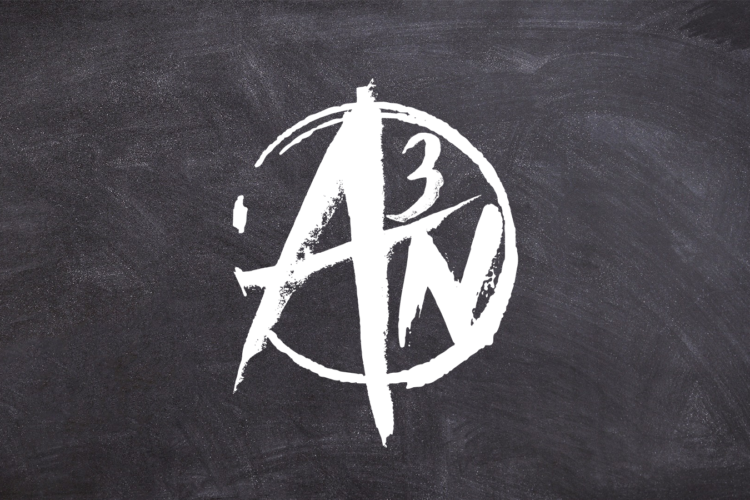
An Agorist Education
“My schooling not only failed to teach me what it professed to be teaching, but it prevented me from being educated to an extent which infuriates me when I think of all I might have learned at home by myself.”
George Bernard Shaw (1856-1950)
We all want to provide an education for our children, but what does that actually mean? Most people believe they need to send their kids to a government school or a private school that has been approved by the government. In the relatively short time governments have controlled schools, they have been successful in convincing people that only government can educate children. It is past time for us to question this assumption.
What is the purpose of an education? The short-sighted answer is “to get a degree” or “to get a job.” These are misleading and assume that the current conditions will always hold, but they won’t. The more accurate and more encompassing answer is that an education should prepare you to not only survive but thrive in the world in which you find yourself. When we understand an education in these terms, we can better understand why the current system should be abandoned because it is both unnecessary and fails to provide this outcome for students.
Though most people today cannot imagine a time without government-run schools, modern education systems are not old. Just after the turn of the 19th century the Unitarians began pushing for the Prussian model of education, which was supported by the Hegelian notion of the state as god on earth. It was, by their thinking, up to the state to mold the child and create the perfect citizen. In modern language we would say that “it takes a village to raise a child.” Notice that from the very beginning, the goal of state-run schools was not education as we have defined it above, but rather indoctrination into the system that those in power desired. The goal was to create “good citizens” not educated individuals. To a large extent these systems of “education” have been all too effective at creating citizens who are unwilling and unable to question the actions of those in power.
Almost everyone agrees that there must be a better way.
“Children must be taught how to think not what to think.” Margaret Mead
Second only to the effort to create obedient citizens, is the problem of the one-size-fits-all approach. As systems of education, this approach has been a dismal failure. The pendulum seems to swing from rote memorization, to creative thought, and back again. It relies on a one-size-fits-all solution that, in truth, does not work for anyone. It holds back and bores faster students, essentially penalizing them for understanding the material, and it fails those who do not understand the material immediately by repeating the very lessons that did not work the first time. Children that learn best by doing are forced to learn by rote memorization and standardized tests. Kids that excel at reading and moving ahead are held back by the rigid grade level system and teachers who don’t know how to handle kids that advance quickly. Those who learn best by seeing the need of the knowledge in the real world very often never get a chance to learn those skills because they are deemed failures by the system, when it is the system that fails the students.
Individual children learn in different ways. They all come from different backgrounds and life experience. The bureaucrats who control the way ideas are taught in the schools never meet or know the individual students and so cannot understand what each kid needs. Even if the intentions of the bureaucrat are laudable there simply are too many students to make this sort of knowledge possible. However, there is a group of people who do know the background of each student and what they have gone through up to that point: parents. Parents also have a vested interest in the child learning, while the bureaucrat can only have a vested interest in the figures used to advance the career of the bureaucrat. This is, in part, why we have seen the rise of standardized testing replacing education.
What Mead is trying to tell us is that we must provide the tools for learning, not mere facts or answers. We all learn best what we desire to know, so the best way to teach a child is to give them the tools for learning since those tools apply to all areas of interest.
Even if we are generous and accept that perhaps this collectivized education was necessary at some point, we are now beyond that point. We have the technology and material available for a free or nearly free education for each student. The available information goes well beyond anything that the government system of education ever encompassed, and it allows parents and private educators to customize the education system to the needs and interests of the student.
With the education itself available to everyone, what else is needed? The world that students graduate into is one that requires proof for potential employers to know that the student will be an asset to the company They need to know that the student can do the job for which they are hired. Currently employers rely upon degrees and diplomas, essentially government certification that the student went through what the government decided was necessary. Ask any recruiter or employer and they will tell you that these far from guarantee that the would-be employee is actually competent. Employers or clients may want some sort of certification to identify those who have the necessary knowledge or skills. Reputation scores along the lines of those on Ebay or Amazon, are very helpful for those who have experience. However, how do we hire people new to the industry, regardless of industry, without some certification?
These certifications need not be governmental at all. The reputation score model can still serve for those just coming into the marketplace. A person fresh out of training lacks the necessary reputation in the industry, but we can solve that problem by relying upon the reputation of the training company. If, as a rule, the graduates of Acme Engineering Academy are high quality, then the high reputation of Acme Engineering Academy is used in place of reputation of the individual graduate. If the standards of AEA fall, then the graduates’ certification from AEA is likewise not as valuable.
Other solutions, say for basic knowledge that current grade school system is supposed to provide, could be simply private testing companies. Just like the GRE replaces the grade school diploma, so too can various testing company certification serve to let employers know the knowledge of the person that they are hiring. Life Skills Testing, another fictional company, could offer testing and ratings to any who want to show general competence so that they can get into an entry level position. These tests could easily be customized to emphasize the skills and knowledge across many different fields. The better the reputation of the testing company the more valuable a good score from them would be, and the greater confidence employers would have in their hiring choices.
Though today we have more information available, our schools have less education. There has never been a better time in human history to find the information that leads to a superior education. The biggest hurdle to overcome is the assumption that the state must be involved. Unlike so many of our challenges as agorists, this one is remarkably easy to make happen now.







